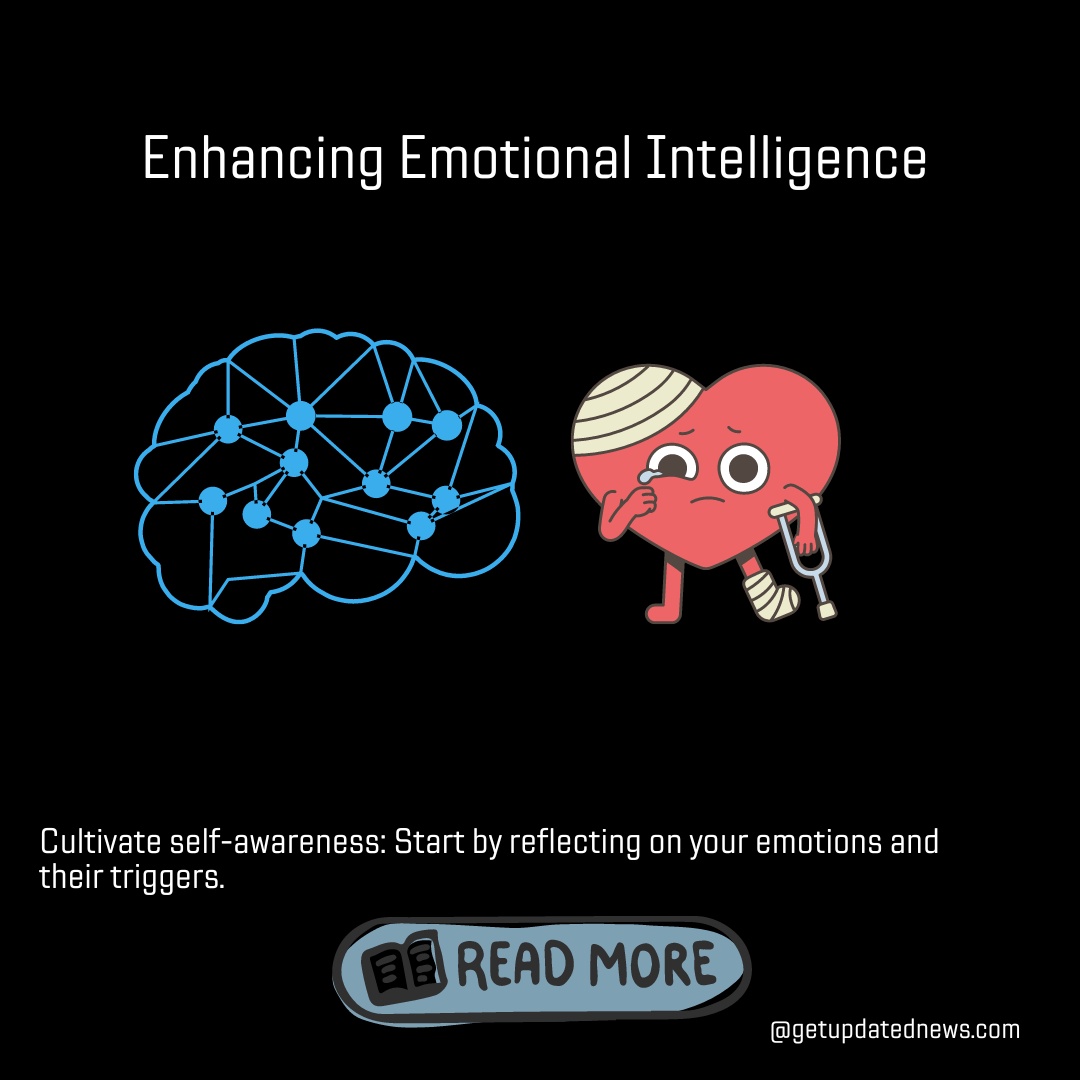In today's fast-paced and interconnected world, the ability to understand and manage emotions is paramount. Emotional intelligence, often referred to as EQ, plays a pivotal role in our overall well-being and success. It encompasses a range of skills and qualities that enable us to recognize and regulate our own emotions while understanding and empathizing with the emotions of others. By harnessing emotional intelligence, we can navigate complex social interactions, build meaningful relationships, and make more informed decisions. In this blog post, we will delve into the concept of emotional intelligence, its importance, and practical strategies for enhancing our EQ.
Understanding Emotional Intelligence
Emotional intelligence consists of four key components: self-awareness, self-management, social awareness, and relationship management. Self-awareness involves recognizing and understanding our own emotions, strengths, weaknesses, values, and beliefs. It enables us to accurately assess our reactions to different situations and understand their impact on our behaviour and decision-making.
Self-management refers to the ability to regulate and control our emotions effectively. By managing our impulses, adapting to change, and remaining resilient in the face of challenges, we can maintain a positive and balanced emotional state. This skill empowers us to think before acting, avoid impulsive behaviour, and make rational choices. For more information read here
Social awareness entails perceiving and understanding the emotions, needs, and perspectives of others. It involves empathizing with people's experiences, recognizing nonverbal cues, and developing sensitivity to cultural differences. By cultivating social awareness, we can build stronger connections, resolve conflicts, and collaborate more effectively.
Relationship management revolves around nurturing and maintaining healthy relationships. This involves effective communication, conflict resolution, and the ability to inspire and influence others. It encompasses skills such as active listening, constructive feedback, teamwork, and leadership.
Enhancing Emotional Intelligence
Cultivate self-awareness: Start by reflecting on your emotions and their triggers. Keep a journal to track patterns and identify recurring emotional responses. Engage in introspection and seek feedback from trusted individuals. Meditation and mindfulness practices can also aid in developing self-awareness.
Practice self-management: Learn to regulate your emotions by recognizing and managing stress. Incorporate stress-reducing techniques into your routine, such as exercise, deep breathing, or engaging in hobbies. Develop strategies for maintaining a positive mindset, such as reframing negative thoughts or focusing on gratitude.
Enhance social awareness: Pay attention to the emotions and body language of others. Practice active listening and empathize with their perspectives. Engage in diverse social interactions to broaden your understanding of different cultures and backgrounds. Read books or take courses on emotional intelligence and empathy.
Build relationship management skills: Hone your communication skills by expressing yourself clearly and assertively. Practice active and empathetic listening to foster deeper connections. Learn to give and receive feedback constructively, and be open to compromise during conflicts. Seek opportunities to lead and collaborate in group settings.
Develop empathy: Put yourself in others' shoes and strive to understand their emotions and experiences. Practice empathy by actively listening, validating emotions, and offering support. Cultivate empathy through volunteering or engaging in acts of kindness. Remember that empathy is a skill that can be learned and strengthened over time.
Seek feedback and learn from experiences: Actively solicit feedback from others, both positive and constructive. Be open to criticism and use it as an opportunity for growth. Reflect on past experiences to identify areas for improvement and apply lessons learned to future interactions. Best Self-Grooming & Artificial Intelligence Blogs.
Conclusion
Emotional intelligence is a crucial skill set that can greatly enhance our personal and professional lives. By improving our self-awareness, self-management, social awareness, and relationship management skills, we can better navigate the complexities of human
FAQs
What are the benefits of developing emotional intelligence?
Developing emotional intelligence offers numerous benefits. It enhances self-awareness, allowing you to understand your own emotions, strengths, and weaknesses. This awareness enables better self-management, leading to improved decision-making and the ability to handle stress and conflicts effectively. Emotional intelligence also enhances social awareness, enabling you to understand and empathize with others, thereby improving relationships and communication. Overall, developing emotional intelligence positively impacts personal well-being, resilience, and success in both personal and professional spheres.
Can emotional intelligence be learned and improved?
Yes, absolutely! While some individuals may naturally possess higher emotional intelligence, it is a skill set that can be learned and improved upon. Emotional intelligence is not fixed, and through conscious effort and practice, anyone can enhance their emotional intelligence. Techniques such as self-reflection, seeking feedback, mindfulness, and engaging in social interactions can aid in developing emotional intelligence. By consistently working on self-awareness, self-management, social awareness, and relationship management skills, you can significantly improve your emotional intelligence over time.
How does emotional intelligence impact relationships?
Emotional intelligence has a profound impact on relationships. It enhances communication by improving the ability to express oneself clearly and listen actively. Individuals with higher emotional intelligence are better at understanding and empathizing with the emotions and needs of others, which fosters deeper connections and trust. Additionally, emotional intelligence enables effective conflict resolution by promoting empathy and the ability to see different perspectives. By managing emotions and regulating reactions, emotional intelligence helps maintain healthier and more harmonious relationships, whether in personal or professional settings.


No comments yet